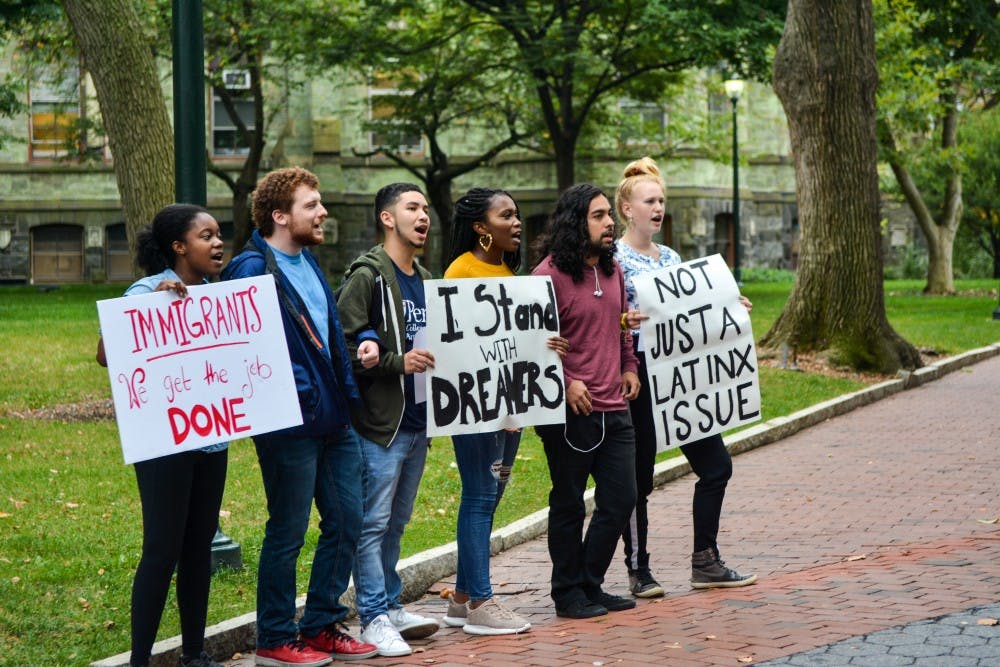In the wake of Trump’s decision to reverse the Deferred Action for Childhood Arrivals program — an Obama-era immigration policy that allowed certain immigrants who arrived in the United States as children to stay in the country legally — the City of Philadelphia has taken steps to provide resources for residents affected by the decision to get the support they need.
Trump's decision to end DACA has sparked anxiety among communities at Penn. In September, Penn President Amy Gutmann described the decision as "heartbreaking," while students took to College Green to stand in solidarity with those threatened by this.
Philadelphia's Office of Immigrant Affairs has partnered with local, smaller advocacy groups and nonprofit organizations to urge people to donate to immigrant causes and help provide additional resources that the government does not provide.
“The one thing I’ve learned in this line of work is that we are extremely, extremely lucky to have an amazing network of nonprofit organizations that serve our immigrant community.” said Miriam Enriquez, the executive director of the Office of Immigrant Affairs.
The Office of Immigrant Affairs lists four local organizations — Southeast Asian Mutual Assistance Association Coalition, Aquinas Coalition, New Sanctuary Movement and Juntos — as helpful resources in providing information on DACA.
One of these organizations, the Aquinas Center, is part of the Catholic community in South Philadelphia and works with local immigrants to integrate them into the community.
According to Executive Director Bethany Welch, the Aquinas Center worked with volunteer attorneys and paralegals to ensure that those with DACA issuances or work permits expiring before March 5 are able to meet the 30-day renewal deadline.
“Once that window closed, our ongoing support that’s specific to DACA would be around answering questions if people had questions with regards to work authorization or associated paperwork,” Welch said.
RELATED:
Penn denounces Trump's 'heartbreaking' and 'perverse' decision to end DACA
What Trump's reversal on DACA means for undocumented students at Penn
Some of these other organizations can connect immigrants to legal services, reaching out to residents in their communities and directing them to the legal organizations that can more adequately serve their needs.
The Philadelphia Praise Center, a congregation in South Philly, helps to form a support network for marginalized people such as immigrants as part of its mission. The Center's founding pastor, Aldo Siahaan, said they work with organizations such as the Christian Legal Clinic to provide DACA recipients with legal advice.
“[DACA] is like a two year work visa. It doesn’t give them a path to citizenship, but it makes them feel a little bit safer," said Peter Hileman, the executive director of Christian Legal Clinic.
There are also a variety of ways to advocate for DACA recipients, which are listed on the Office of Immigrant Affairs website, such as calling representatives and encouraging them to support immigrants. There are also organizations focused on supporting immigrant rights like the Immigration Defense Project and United We Dream.
The Office of Immigrant Affairs plans on holding conferences for these nonprofits so that outreach to immigrant communities can be more organized.
“It’s important that different organizations communicate, know what each other is doing, so that if that particular organization can’t help somebody, they can also refer them to another organization in Philadelphia that can,” Enriquez said.



